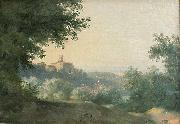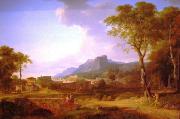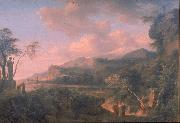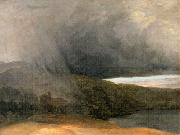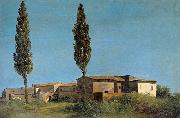|
||||||||||
|
|
||||||||||
|
View of the Palace of Nemi. Gemälde ID:: 72094 Siehe Galerie in Schweden |
View of the Palace of Nemi. Landscape from the french painter Pierre-Henri de Valenciennes. View of the Palace of Nemi. Landscape_from_the_french_painter_Pierre-Henri_de_Valenciennes._View_of_the_Palace_of_Nemi. |
|||||||||
|
|
||||||||||
|
A Capriccio of Rome with the Finish of a Marathon Gemälde ID:: 72266 Siehe Galerie in Schweden |
A Capriccio of Rome with the Finish of a Marathon Date 1788 Medium Oil on canvas Dimensions ? X cm cyf Date_1788 _ Medium_Oil_on_canvas _ Dimensions_?_X_cm _ cyf |
|||||||||
|
|
||||||||||
|
Cicero Discovering the Tomb of Archimedes Gemälde ID:: 81781 Siehe Galerie in Schweden |
Cicero Discovering the Tomb of Archimedes Date 1787 Medium Oil on canvas Dimensions 119 x 162 cm cjr Date_1787 _ Medium_Oil_on_canvas _ Dimensions_119_x_162_cm _ cjr |
|||||||||
|
|
||||||||||
|
Storm by a Lake Gemälde ID:: 85166 Siehe Galerie in Schweden |
Storm by a Lake Date 1780(1780) Medium Oil on paper on canvas Dimensions Height: 40 cm (15.7 in). Width: 52 cm (20.5 in). cjr Date_1780(1780) _ Medium_Oil_on_paper_on_canvas _ Dimensions_Height:_40_cm_(15.7_in)._Width:_52_cm_(20.5_in). _ cjr |
|||||||||
|
|
||||||||||
|
the Two Poplar Trees Gemälde ID:: 85193 Siehe Galerie in Schweden |
the Two Poplar Trees Date 1780(1780) Medium Oil on paper on cardbord Dimensions Height: 25 cm (9.8 in). Width: 38 cm (15 in). cjr Date_1780(1780) _ Medium_Oil_on_paper_on_cardbord _ Dimensions_Height:_25_cm_(9.8_in)._Width:_38_cm_(15_in). _ cjr |
|||||||||
|
|
||||||||||
| Vorheriger Künstler Nächster Künstler | ||||||||||
|
|
||||||||||
| Pierre-Henri de Valenciennes | ||||||||||
| (December 6, 1750 - February 16, 1819) was a French painter. Valenciennes worked in Rome from 1778 to 1782, where he made a number of landscape studies directly from nature, sometimes painting the same set of trees or house at different times of day.He theorized on this idea in Advice to a Student on Painting, Particularly on Landscape (1800), developing a concept of a "landscape portrait" in which the artist paints a landscape directly while looking upon it, taking care to capture its particular details.Although he spoke of this as a type of painting mainly of interest to "amateurs", as distinguished from the higher art of the academies, he found it of great interest, and of his own works the surviving landscape portraits have been the most noted by later commentators. He in particular urged artists to capture the distinctive details of a scene's architecture, dress, agriculture, and so on, in order to give the landscape a sense of belonging to a specific place; in this he probably influenced other French artists active in Italy who took an anthropological approach to painting rural areas and customs, such as Hubert Robert, Pierre-Athanase Chauvin and Achille-Etna Michallon. | ||||||||||
|
|
||||||||||
IntoFineArt Co,.Ltd.








